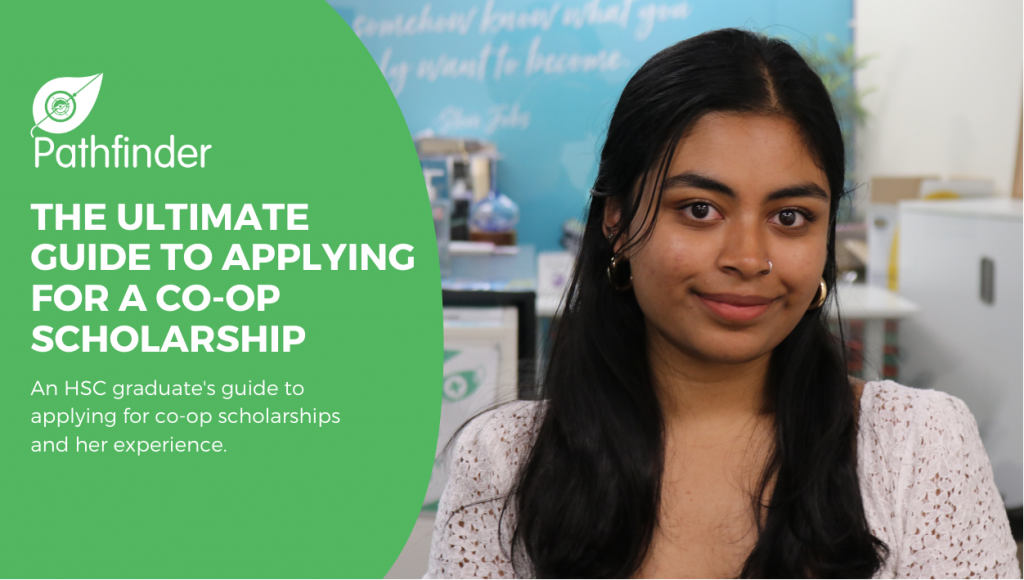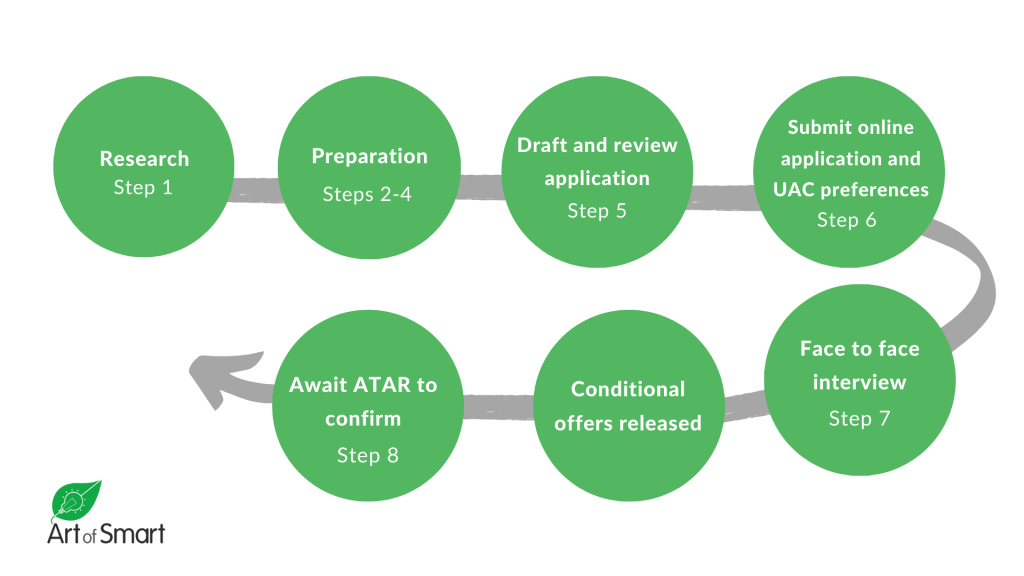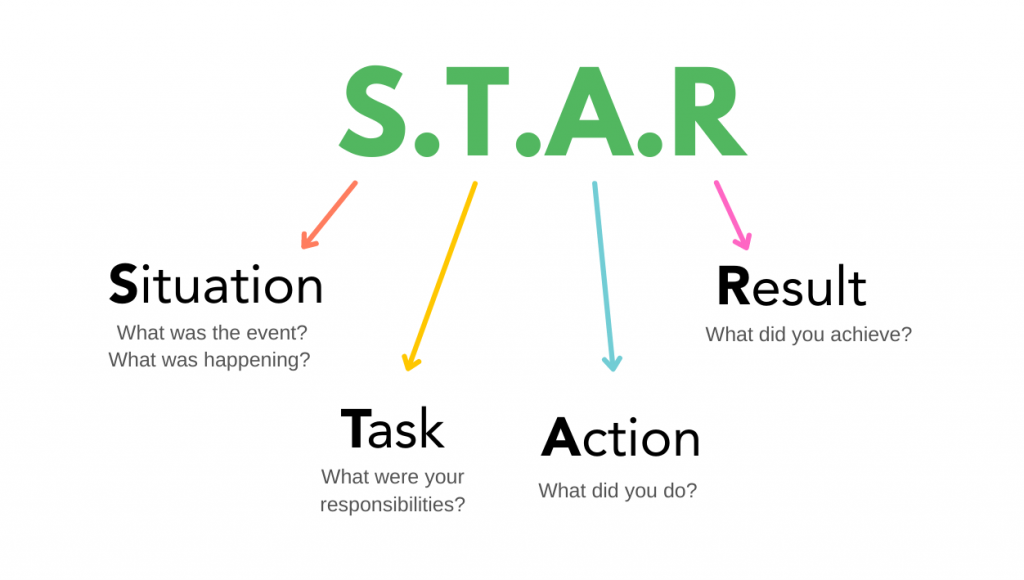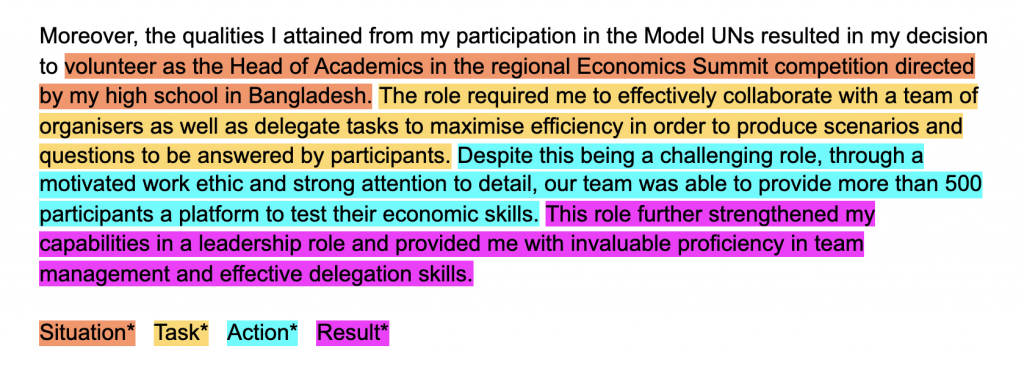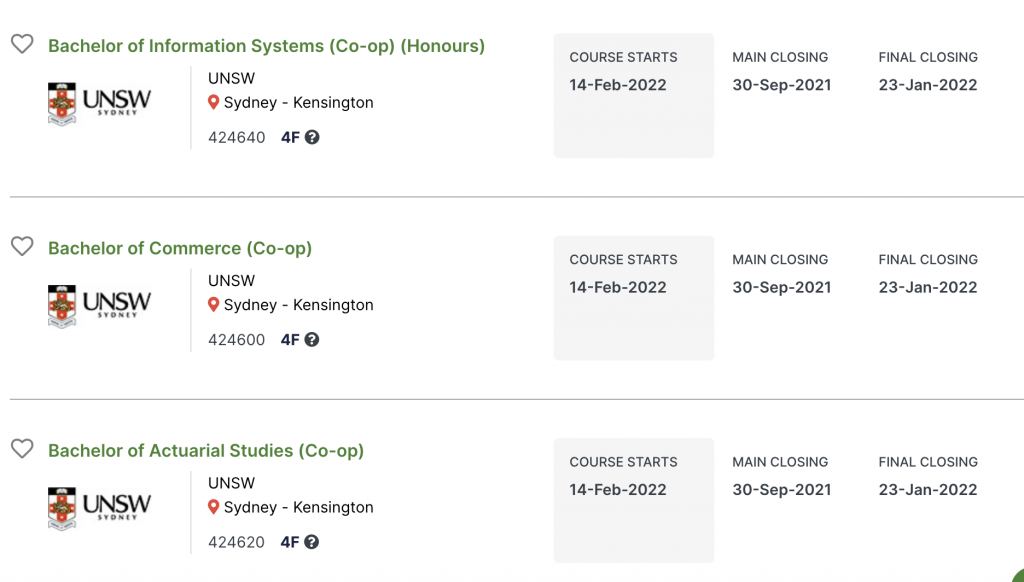So you’re thinking about applying for a co-op scholarship? Feeling lost? Not quite sure what they’re looking for?
Check out how Art of Smart’s Pathfinder program helped Rubab create a killer application and secure a spot in her dream degree.
Meet Rubab!
Why You Should Apply for A Co-op Scholarship
Step #1: Research your options
Step #2: Check the requirements and your eligibility
Step #3: Find a mentor
Step #4: Record your achievements
Step #5: Draft and review your application
Step #6: Submit your online application and UAC preferences!
Step #7: Prepare and do your interview
Practice Interview Questions
Step #8: Await ATAR results!
Meet Rubab!
- Rubab Rahman was a graduate of Bulli High School
- She is one of 70 amazing Art of Smart Pathfinders from across NSW
- Rubab is studying a Bachelor of IT at UTS as a co-op scholarship recipient
During Year 12, Rubab was unsure of where she was headed — both in terms of university degree and career.
She knew she wanted to do well in the HSC but she came to the realisation she didn’t know exactly what for.
As someone who moved around a lot, Rubab didn’t have family members that were familiar with the process and struggled to find a starting point.
Feeling like her school didn’t provide her with sufficient support in terms of her future ideals, the Pathfinder program was perfect to give her exactly that!
With a lack of clarity surrounding her options after school and the application process, Rubab sought guidance from her mentor Eileesha Smith who had been there firsthand (she even graduated from the same school!) and could answer all of her questions.
The idea of co-op scholarships was something that hadn’t even crossed Rubab’s mind, she’d barely even heard of one before!
Why You Should Apply for A Co-op Scholarship
You’ve probably heard this word thrown around quite a bit and might be wondering why people are so fixated on getting one.
The main benefits of co-op scholarships are monetary gain up to tens of thousands and invaluable work experience in your degree field.
These scholarships are paid for by companies who sponsor the university and eventually provide placements to co-op scholarship recipients.
Spoiler alert: Rubab scored a scholarship of $49,500 that will be paid over the course of her 3-year degree!
During the degree, you will be completing at least two industry placements and these can range from 12 to 24 weeks!
This experience will make you highly appealing to employers when you graduate.
These were things that Rubab sought and thus why she decided to apply!
Because of these benefits, co-op scholarships tend to be super competitive and require high ATARs as well as an impressive interview!
What is involved in the co-op scholarship application process?
The co-op scholarship application process can be defined by seven stages as seen in the graphic below.
This article will tell you everything you need to know by providing tips and tricks step by step!
Step #1: Research your options
Rubab had no idea just how many options there were out there and so the first thing the Pathfinder program did was help her research.
Through her research, she found new degrees, scholarships and early entry programs she was interested in that made her that much more motivated for her HSC.
She was shocked at what she would’ve missed out on, had she not searched around!
After this experience, Rubab highly recommends all senior students set aside a day purely devoted to researching these options.
While school lets you know about some, there will always be more out there potentially from places you’ve never even considered before.
Having a mentor that also knew Rubab’s goals and interests was super helpful as she was able to identify relevant and exciting opportunities.
Being mentored by Eileesha was actually how Rubab ended up finding out about UTS’ Bachelor of Information Technology Co-op scholarship!
Links
Here are some links to NSW co-op scholarships!
Step #2: Check the requirements and your eligibility
Co-op scholarships are highly competitive as they are greatly valued by employers and tend to offers tens of thousands of dollars in monetary value.
As a result, they attract thousands of students every year who get filtered out due to a lack of extracurricular experience and high marks.
Therefore, if you’re planning to apply you better have joined some clubs and gotten those marks up in advance!
ATAR Cut-offs for co-op scholarships
- UNSW’s co-op ATAR requirement for co-op applicants this year is a minimum of 96.00 or equivalent with EAS adjustment factors.
- Macquarie University expects co-op applicants to be on track to achieve a selection rank of 98.00, this may include up to five EAS adjustment points.
- UTS places the greatest weight on the interview and therefore their ATAR expectations lie from 85.00 up although ideally at least 90.00.
Unfortunately, co-op scholarships are only available to domestic students with an Australian citizenship or permanent resident visa or New Zealand citizenship due to work placements.
For most co-op scholarships, you may only apply if you graduated the year that you are applying or the year before.
You are also not allowed to defer as the number of places varies from year to year, so if you were thinking about a gap year, you might have to think/apply again!
Therefore it’s very important to check out your eligibility before applying and of course, note down those due dates!
If you’re not eligible, don’t fret! There are early entry programs and scholarships available for international students! Check out how Maitreyi got both here!
Step #3: Find a mentor
Rubab found it really helpful to have someone like Eileesha throughout the application process.
Art of Smart’s Pathfinder program has a pool of diverse mentors to make sure that you can connect with someone who can help you receive the greatest value out of the program.
Without much idea about the application process, Rubab really enjoyed Eileesha’s support and the reassurance that she would be able to answer any questions she may have.
Another way to find a mentor is to speak to a high school alumnus that applied for the same thing you want to do — reach out!
If you don’t though, LinkedIn is another great resource where you can message professionals that could even help you out in your future career.
Rubab knows how much smoother the process can be when you’re aware of the expectations and have a bit of a guide to follow, so definitely use that to your advantage!
Step #4: Record your achievements
If you’re even thinking about applying, start recording your achievements.
See, while good marks are great, these programs make you apply before you get your ATAR and so it’s best that you’ve got a few achievements you can talk about.
Seek out the co-op scholarships you want to apply for ASAP so you can find out what they want and stand out!
Check out the six things co op scholarships are looking for below!
Rubab found her resume to be a super handy resource for writing her applications as she was able to refer to it for dates and her key responsibilities — Macquarie University actually requires one!
So if you haven’t already, find out how to write a resume here!
For her applications, she was also able to utilise skills she had learned in several intensive workshops as part of the Pathfinder program designed to get students career-ready.
During an already hectic time, having that extra tailored support was incredibly valuable to Rubab and a key benefit of the Pathfinder program.
The STAR technique
Throughout her applications, Rubab utilised the STAR technique structure to ensure she was effectively communicating her achievements.
This was something she had learnt from the Pathfinder program and found immensely useful in her applications and even interviews!
Step #5: Draft and review your application
The key to writing a good application is editing.
This means drafting and reviewing your application multiple times and getting knowledgeable people to read over it!
For Rubab, this was her mentor Eileesha, our Pathfinder program manager Daniel Dummer and even our CEO Rowan!
It’s really important to have someone else reviewing your application as we can tend to discredit our achievements and overlook our strengths when co-ops are seeking confident, passionate, and capable students!
These co-op applications tend to have a short word or character limit so make sure you’re communicating effectively and they can see your greatest self!
Check out how Rubab did this using the STAR technique below!
Step #6: Submit your online application and UAC preferences!
So by now, your application should be super polished and all that’s left to do is apply!
When applying for co-ops make sure you find the right submission portal for each university AND be sure to make sure you have selected the co-op version of your desired degree in your UAC preferences.
They should look like as pictured below or otherwise do a quick Google search!
Either way, make sure you’ve included them in your preferences and submitted your application online to get considered!
Step #7: Prepare and do your interview
If your application is impressive, you may be invited to an in-person interview so that a panel of university personnel can determine whether or not you’d be a good fit for the program!
As there are significant demands from the degree, they’re looking to see if you’re passionate about the degree you’re applying for and academically capable.
For UNSW co-op applications, interview recipients will additionally be required to submit a short online video before the face-to-face interview so keep an eye out!
UNSW and Macquarie’s interviews are done after your HSC exams are finished in November however UTS’ interviews are held over one day in September!
For UTS, if you nail your interview, your ATAR will have less weighting in your application. While above 85 is expected, if you get a few points below you’re still fine!
Tips for your co-op interview
Tip #1: Practice of course!
A simple strategy to nailing interviews is practice.
Rubab had found some questions online which helped her get familiar and prepare.
Get your mentor, family or friends to help you out here and take on the role of the interviewer so you can practice answering questions on the spot and prevent those awkward moments.
Rubab also made sure to have a good read over her application before her interview — remember, this so far has been your only introduction to your interviewers!
Therefore it can be really helpful to refresh your memory and identify potential talking points you could expand upon!
Tip #2: Don’t let the interviewers throw you off
The interviews are a long process not only for you but the interview panel!
Rubab was interviewed by two people; a faculty member and a representative from one of the company sponsors.
As they’d be doing maybe a hundred interviews a day, Rubab says don’t let their expressions get to you!
While it may look like they’re getting a bit bored and tired, it’s been a long day and they can only keep it up for so long.
So don’t get discouraged and let it affect your answers, but persevere and show them why you want it!
Tip #3: Research the sponsors
Each year, a number of companies will sponsor the co-op scholarships and so Rubab recommends getting to know a bit about each — after all you could end up working there!
She admits this may have been overboard but Rubab researched the 20 companies sponsoring and made notes on each of them.
This included the latest news at the company, what they did, their mission and more!
One of her interviewers were super impressed since Rubab knew exactly what was going on with her company which only emphasised her passion (a key thing they’re looking for)!
With an online interview, Rubab could even refer to her notes during!
Practice interview questions
Check out what Rubab was asked for her UTS Bachelor of IT Co-op interview below!
- How is studying for the HSC going?
- Why did you choose the BIT co-op?
- What do you see yourself doing with IT in the future?
- What’s an instance when you’ve solved a problem?
- When was a time you had to reduce conflict, and how did you achieve that?
- How would you create impact in an organisation?
Conditional Offers
All conditional offers will come out after the HSC exams are already over.
Rubab completed her interview at the end of September and received her conditional offer in the middle of November.
This means that you won’t know about your co-op application status until after your HSC so don’t rely on receiving an offer for motivation!
Step #8: Await your HSC and ATAR results!
Once you’ve received your conditional offer, all that’s left to do is wait for your results!
Rubab received her unconditional offer the day she got her HSC results.
If you end up meeting the cutoff, the universities will send you an offer as soon as they receive your HSC and ATAR results and you’re in!
Good luck and happy applying!
Gabrielle Wong is currently the Digital Marketing Assistant at Art of Smart. She is a second year student at the University of Sydney studying a Bachelor of Arts/Advanced Studies majoring in Media and Communications and Marketing.

